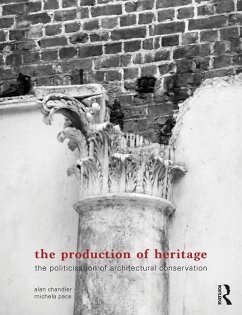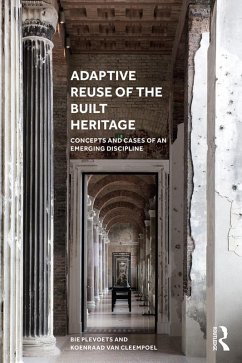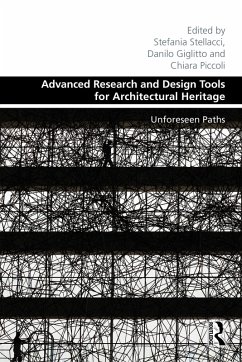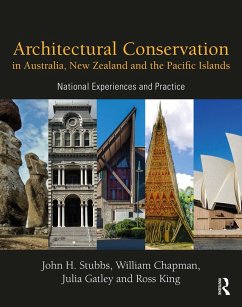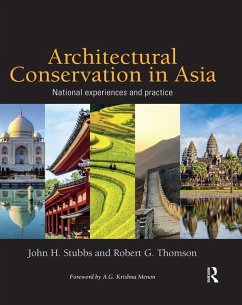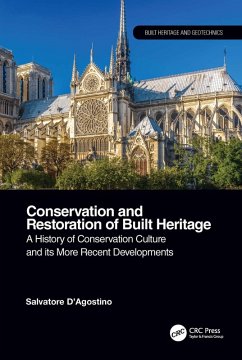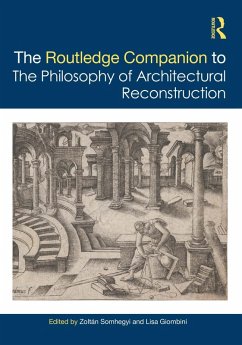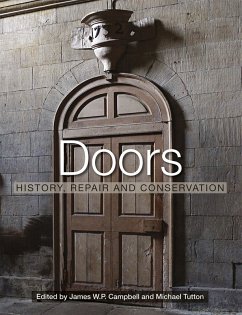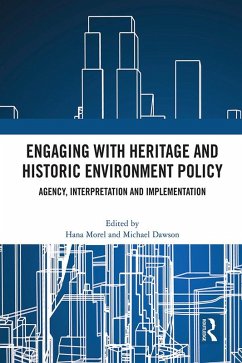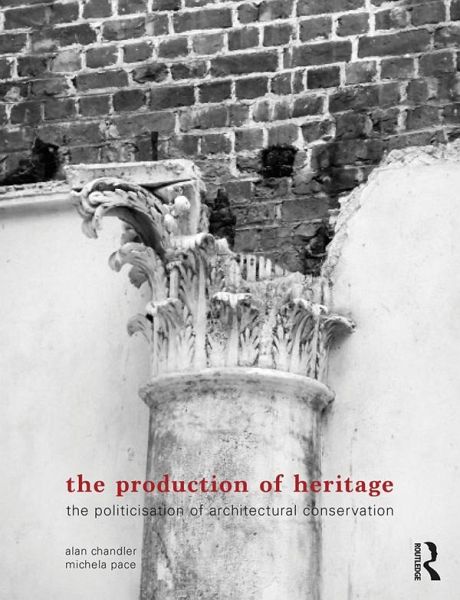
The Production of Heritage (eBook, PDF)
The Politicisation of Architectural Conservation
Versandkostenfrei!
Sofort per Download lieferbar
47,95 €
inkl. MwSt.
Weitere Ausgaben:

PAYBACK Punkte
24 °P sammeln!
In this important book, the authors unpack the theoretical and practical issues around the development of heritage sites, critically dissecting key conservation benchmarks such as the ICOMOS guidelines, BS 7913 and the RIBA Conservation Plan of Work to reveal the mechanics of heritage guidance, its advantages and conceptual limitations.Underpinned by an active understanding of the conservation philosophy of William Morris, the book presents five case studies from the UK and North and South America that speak about different facets of heritage value, such as urban identity, commodification, aut...
In this important book, the authors unpack the theoretical and practical issues around the development of heritage sites, critically dissecting key conservation benchmarks such as the ICOMOS guidelines, BS 7913 and the RIBA Conservation Plan of Work to reveal the mechanics of heritage guidance, its advantages and conceptual limitations.
Underpinned by an active understanding of the conservation philosophy of William Morris, the book presents five case studies from the UK and North and South America that speak about different facets of heritage value, such as urban identity, commodification, authenticity, materiality and heritage as an intellectual and ethical framework. Heritage is never neutral; its definition is privileged yet its influence is political. Art, landscape and archaeology all offer examples of how the operational ideas of adjacent disciplines can influence an integrated idea of heritage conservation, and how this is communicated in order to determine significance and share in its custodianship.
This book provides insights into how to identify and challenge these limitations, expanding inclusion by describing tactics for changing how people can relate to and build on the past. Clearly written for all levels of readership within the conservation professions and community custodians of heritage buildings and places, the book provides strategies and tactics for understanding the heritage significance of materials, their fabrication, detail and use. The narratives that historic fabric contains can help shape the meaningful involvement of local people, providing a roadmap for those navigating the double-bind of using the past to underpin the future.
Underpinned by an active understanding of the conservation philosophy of William Morris, the book presents five case studies from the UK and North and South America that speak about different facets of heritage value, such as urban identity, commodification, authenticity, materiality and heritage as an intellectual and ethical framework. Heritage is never neutral; its definition is privileged yet its influence is political. Art, landscape and archaeology all offer examples of how the operational ideas of adjacent disciplines can influence an integrated idea of heritage conservation, and how this is communicated in order to determine significance and share in its custodianship.
This book provides insights into how to identify and challenge these limitations, expanding inclusion by describing tactics for changing how people can relate to and build on the past. Clearly written for all levels of readership within the conservation professions and community custodians of heritage buildings and places, the book provides strategies and tactics for understanding the heritage significance of materials, their fabrication, detail and use. The narratives that historic fabric contains can help shape the meaningful involvement of local people, providing a roadmap for those navigating the double-bind of using the past to underpin the future.
Dieser Download kann aus rechtlichen Gründen nur mit Rechnungsadresse in A, B, BG, CY, CZ, D, DK, EW, E, FIN, F, GR, HR, H, IRL, I, LT, L, LR, M, NL, PL, P, R, S, SLO, SK ausgeliefert werden.




